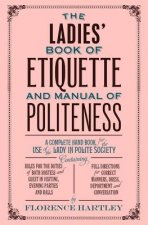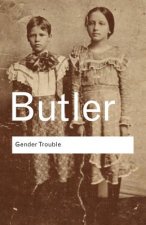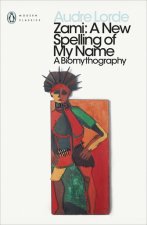
Code: 10884946
Gender, Politics and Land Use in Zimbabwe 1980-2012
by Onias Mafa, Enna S Gudhlanga, Norman Manyeruke
The agrarian reform dynamics in southern Africa have to be understood within the framework of colonial land policies and legislation that were designed essentially to expropriate land and natural resource property rights from the ... more
- Language:
 English
English - Binding: Paperback
- Number of pages: 252
Publisher: CODESRIA, 2015
- More about this

You might also like
-

Far from You
10.17 € -23 % -

20-30 Something Garden Guide
19.03 € -17 % -

Frederick's Heir
23.67 € -

Give Me Liberty! - An American History 3e
113.04 € -5 % -

Dead Madonna
15.61 € -13 % -

Atención selectiva, percepción y memoria visual
17.42 € -

For The Heart Of Dragons
16.92 €
Give this book as a present today
- Order book and choose Gift Order.
- We will send you book gift voucher at once. You can give it out to anyone.
- Book will be send to donee, nothing more to care about.
More about Gender, Politics and Land Use in Zimbabwe 1980-2012
You get 134 loyalty points
 Book synopsis
Book synopsis
The agrarian reform dynamics in southern Africa have to be understood within the framework of colonial land policies and legislation that were designed essentially to expropriate land and natural resource property rights from the indigenous people in favour of the white settlers. Colonial land policies institutionalised racial inequity with regard to land although conditions are not homogeneous there are broad themes that cut across the southern Africa region. Colonialism dispossessed and impoverished the people by taking away the most productive lands. Neoliberal globalization has undermined the people's well-being through direct influences on agriculture and rural economies in conjunction with policies promoted by national governments and international agencies. Another shared feature is to be found in the high rates of unemployment, poor returns to small-scale agriculture, lack of access to social services such as health and education all of which serve to erode existing livelihood activities and perpetuate relative and absolute poverty in rural areas. This comparative study on Zimbabwe's agrarian reforms may provide countries such as South Africa and Namibia with valuable lessons, as they attempt their own land reforms. Conflicts between colonialists and the indigenous people in the then Rhodesia centred mainly on the land question. This inequitable distribution of land resulted in Africans waging liberation struggles in order to reclaim their land from the colonialists. In most post-colonial countries, calls have been made for land redistribution as a way of redressing colonial injustices in land tenure systems. The process of reclamation of land and redistributing it to the indigenous people is fraught with problems and has resulted in the present-day land crisis in many parts of Africa and other continents. These are some of the issues this book examines, attempts to understand and explain from a gender perspective. Gender relations are viewed in terms of land use and ownership in pre-colonial, colonial and post-colonial Zimbabwe. These socially constructed roles have been found to be unequal in terms of power and decision making. It is argued that lessening of social inequalities between men and women reduces poverty, raises farm efficiency and improves natural resource management. The book emphasises that once women are empowered, the quality of life of their households improves.
 Book details
Book details
Book category Books in English Society & social sciences Society & culture: general Social groups
53.49 €
- Full title: Gender, Politics and Land Use in Zimbabwe 1980-2012
- Author: Onias Mafa, Enna S Gudhlanga, Norman Manyeruke
- Language:
 English
English - Binding: Paperback
- Number of pages: 252
- EAN: 9782869785908
- ISBN: 9782869785908
- ID: 10884946
- Publisher: CODESRIA
- Weight: 358 g
- Dimensions: 234 × 156 × 13 mm
- Date of publishing: 19. October 2015
Trending among others
-

Women Who Run with the Wolves
9.86 € -17 % -

Women Who Run With The Wolves
13.49 € -29 % -

The Mastery of Love
12.28 € -19 % -

Second Sex
15.10 € -4 % -

The Velvet Rage
16.21 € -23 % -

Why Does He Do That?
16.51 € -17 % -

Hillbilly Elegy
12.69 € -36 % -

Who Cooked the Last Supper?
19.84 € -5 % -

Humans of New York
25.78 € -16 % -

Lean In
12.79 € -23 % -

Letters to a Young Muslim
11.78 € -24 % -

Male Brain
12.38 € -21 % -

Raising Kanye
16.01 € -20 % -

Ladies' Book of Etiquette and Manual of Politeness
13.79 € -13 % -

Witches, Witch-hunting, And Women
12.89 € -14 % -

Black Elk Speaks
20.54 € -9 % -

It's a Guy Thing
19.84 € -

North American Indians
15.10 € -20 % -

Vindication of the Rights of Woman
7.24 € -28 % -

Maimonides-Essential Teachings on Jewish Faith & Ethics
16.21 € -18 % -

Dona Gracia of the House of Nasi
23.26 € -19 % -

Duke of Naxos of the House of Nasi
23.26 € -19 % -

Beginner's Ladino with Online Audio
17.22 € -17 % -

Contemplation of the Holy Mysteries
23.37 € -

The Politically Incorrect Guide to Jihad
18.23 € -20 % -

Exile and Pride
20.65 € -13 % -

How to Be Successful Without Hurting Men's Feelings
11.78 € -29 % -

Between the World and Me
21.25 € -18 % -

Manipulated Man
14.20 € -16 % -

Think Like a Monk
14.50 € -29 % -

Goddesses in Everywoman
12.18 € -22 % -

Iron John
15.71 € -25 % -

The Autobiography of Malcolm X
10.47 € -7 % -

When God Was A Woman
19.64 € -2 % -

Gender Trouble
27.19 € -

Zami
10.07 € -24 % -

The Way of Men
14.50 € -14 % -

Tom of Finland. The Complete Kake Comics
21.15 € -

Desert Flower
10.07 € -24 % -

Uncle Tom's Cabin
4.83 € -19 % -

Indigenous Peoples' History of the United States
15.41 € -15 % -

Woman Looking at Men Looking at Women
12.18 € -27 % -

Cities for People
62.86 € -2 % -

Deepest Well
16.51 € -17 % -

Like She Owns the Place
17.22 € -21 % -

Hillbilly Elegy
21.05 € -31 % -

Autobiography of Malcolm X
10.17 € -23 % -

Native American Clothing
55.51 € -14 % -

Nice Girls Don't Get The Corner Office
9.76 € -24 %
Collection points Bratislava a 2642 dalších
Copyright ©2008-24 najlacnejsie-knihy.sk All rights reservedPrivacyCookies



 15549 collection points
15549 collection points Delivery 2.99 €
Delivery 2.99 € 02/210 210 99 (8-15.30h)
02/210 210 99 (8-15.30h)